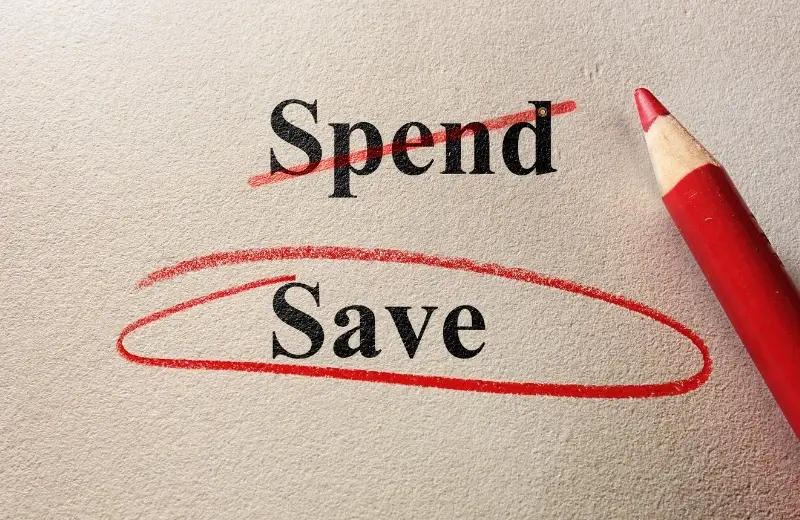Living Within Your Means
We easily understand that living within your means is a fundamental principle of financial health and stability. It involves in aligning expenses with income and prioritizing mindful spending over unnecessary consumption. Frugal spending is a basic component of living within your means, as it allows individuals to make the most of their resources while still enjoying a suitable lifestyle. In this blog, we’ll explore practical strategies for frugal spending that can help individuals achieve financial balance, reduce stress, and build a solid foundation for long-term economic good-being.
Understanding Frugal Spending: More Than Just Cutting Costs
Frugal spending goes beyond simply cutting costs or being cheap. It’s about making intentional choices to prioritize value and efficiency in every financial decision. Frugal individuals are resourceful, creative, and mindful in their spending habits, seeking opportunities to maximize value and minimize waste. Frugal spending is not about deprivation or sacrifice of lifestyle but rather about finding ways to live well on less and derive satisfaction from simplicity and mindfulness.
The Benefits of Frugal Spending
Financial Stability
Frugal spending promotes financial stability by ensuring expenses do not exceed income. By living within their means, individuals can easily avoid debt, build savings, and weather financial emergencies.
Reduced Stress
Financial stress is a common source of anxiety and worry for many individuals. Frugal spending reduces financial strain by eliminating the pressure to keep up with extravagant lifestyles or overspend on unnecessary purchases. It fosters a sense of control and empowerment over one’s economic situation.
Increased Savings
Frugal spending frees more income for savings, investments, and other financial goals. By cutting unnecessary expenses and practicing mindful spending, individuals can build up their savings accounts, emergency funds, and retirement nest eggs more quickly.
Environmental Benefits
Frugal spending often aligns with sustainable and eco-friendly practices, such as reducing waste, conserving resources, and supporting ethical and environmentally responsible companies. By consuming less and making conscientious choices, frugal individuals contribute to a healthier planet and community.

Practical Strategies for Frugal Spending
Budget Planning
Plan a detailed budget outlining your income, expenses, and top financial goals. Track your spending carefully and identify areas where you can cut costs or find low-price but suitable alternatives. Use budgeting apps or spreadsheets to monitor your progress and stay accountable to your financial budget plan.
Differentiate Between Needs and Wants
When need to purchasing, distinguish between essential needs and discretionary wants. Prioritize spending on necessities such as housing, food, utilities, education, skill development and healthcare as well.
Comparison Shop
Comparison shopping is a crucial part in frugal spending. Research prices read reviews, and compare product features before ordering to purchases. Look for sales, discounts, and promotions to get the best value for your money, whether online or in-store.
Avoid Impulse Purchases
Practice mindfulness and self-discipline to resist impulse purchases and avoid unnecessary shopping. Pause and evaluate whether a purchase aligns with your values, goals, and budget before deciding. Consider implementing a waiting period before making non-essential purchases to control impulse buying.
Embrace Minimalism
Adopting to implement a minimalist lifestyle can be conducive to frugal spending. Declutter your living space and prioritize experiences over material possessions. Make sure that your mind focus on quality over quantity, and cultivate gratitude and contentment with what you already have.
Practice Meal Planning and Cooking at Home
Save money on dining out by planning meals and cooking at home and we all know the saying ‘East, west, home’s best’. Prepare simple, nutritious meals using affordable ingredients and leftovers. Batch cooking and meal prepping can save time and money while reducing food waste.
Utilize Free and Low-Cost Resources
Take advantage of free or low-cost resources in your community, such as neighborhood gathering, parks, free family expo, and skill development programs. Borrow books, positive seminar, and other media instead of buying them.
Closing Lines
Frugal spending is a powerful plan for living within your means, achieving financial stability, and building almost a secure future. By applying some practical techniques such as budgeting, prioritizing needs over wants, comparison shopping, avoiding impulse purchases, embracing minimalism, and utilizing free resources. Individuals can stretch their dollars further and maximize their financial well-being. Whether facing economic challenges or seeking to optimize your income, incorporating frugal spending habits into your lifestyle can lead to greater economic freedom, and peace of mind.

